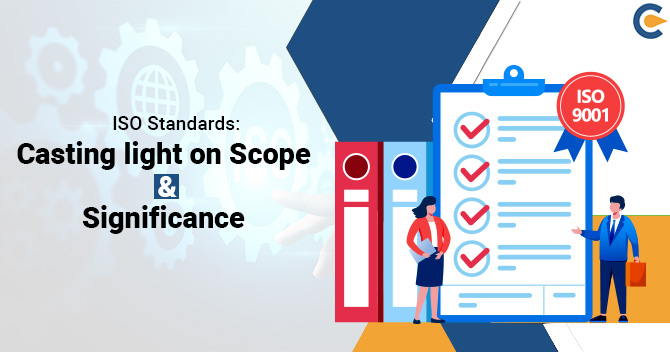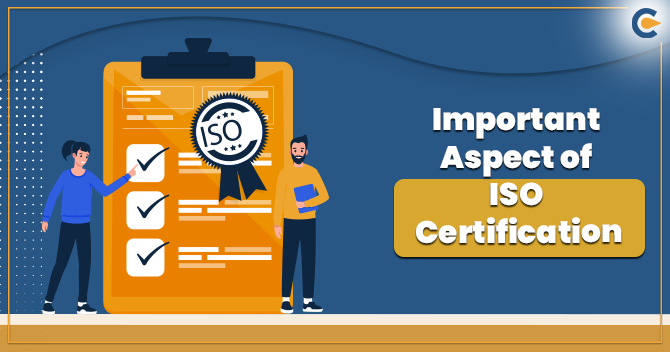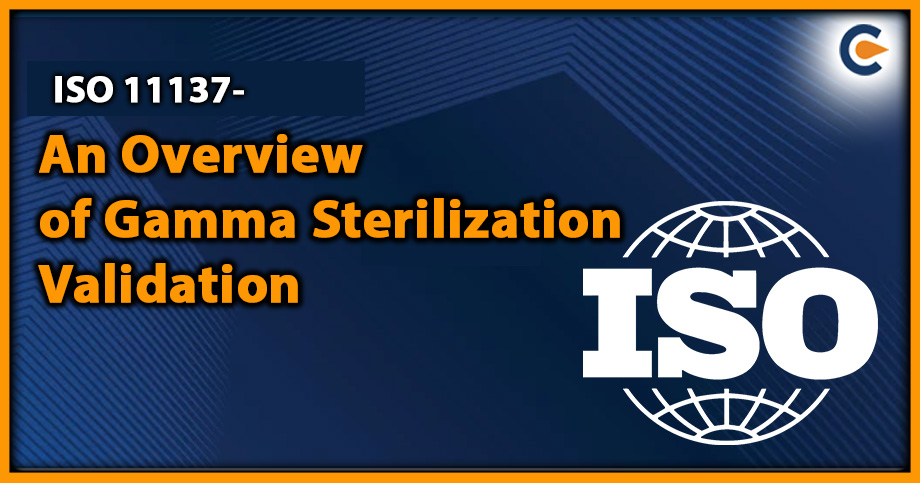We lived in an amazing world full of endless possibilities & incredible opportunities. But it can be an overwhelming & complex place when things don’t work as they should. It often implies standards are absent. But when ISO Standards are applied, life becomes so much easier and more prosperous. ISO Standards help to make the world cleaner, safer & more efficient place. From food safety to healthcare, from computers to new technologies, there are various challenges facing our environment, economy & society. The article discusses the notion of ISO standards in the best possible way.
Significance of ISO Standards in the Today’s World
- In today’s rapidly changing world, ISO standards help create growth, open up the untapped market, and make trade fairer, including for developing nations.
- ISO standards can help battle global challenges such as climate change, road safety, energy & social responsibilities. ISO standards touch nearly everything we do, keeping us connected & entertained, make using more productive, more creative, sharing ideas, advocating innovations, keeping us safe and healthy.
- ISO is the world’s largest developer of voluntary international standards, with over 18000 standards for nearly every aspect of technology and business.
- For most enterprises, the ISO certification is a vital tool. The fact that it concerns a global recognition renders the possibility to function beyond existing boundaries, which implies that enterprises can come into touch with more clients.
- Furthermore, an ISO certification facilitates a unique feature. Many clients are keen to work with ISO-registered entities. In the case of global tenders, it is also apparent to have an ISO predicate as an entity. Without certification, the entire product will become more difficult.
- Entities with an ISO label emphasize their image and communicate to the target consumers that they function in conformity with global norms. This implies their customers are assured that their services are optimized.
Key ISO Standards Benefits
- Pinpoints risks as well as opportunities.
- Mitigates errors from reoccurring.
- Elevate marketing as well as sales efforts.
- Improve workforce performance.
- Ensure better business management.
Read our article:A Complete Guide on How to obtain ISO Certificate? Benefits, Penalties and Fees
List of Widely Recognized ISO Standards
Here is the list of the world’s most popular ISO standards that are prominently utilized across various industry verticals:
ISO 9001
ISO 9001 underpins the criteria related to the quality management system (QMS). It can be utilized by any company, regardless of size or scope of operation. Truth be told, there are more than 1 million entities in over 170 nations registered to ISO 9001.
This standard depends on various quality management principles such as strong end-user focus, the motivation of the top management, the process approach as well as continual improvement.
These Standards are briefly discussed in ISO quality management principles. Utilizing ISO 9001 helps ensure that end-users get good quality products & services, which in turn ensures countless business benefits.
ISO 14001
ISO 14001 standards primarily focused on the social facet of environmental legislation. Furthermore, this standard is slowly becoming an essential framework for companies seeking to make a global footprint. With this certification, entities manifest that they take accountability concerning the environment and those they comply with the underlying environmental legislations.
ISO 27001
The significance of information security must not be overlooked. Minimal information security has severe repercussions. ISO 27001 enables organizations to comply with increasingly complex (European) privacy legislation. As per the legislation, each entity is liable to handle personal details protectively. In doing so, they manifest to be dependable collaboration partners. ISO 27001 enables entities in establishing a management system concerning information security (ISMS).
ISO 50001
ISO 50001 standards refer to the global standard for energy management & facilitate key information related to the energy consumption of entities. In addition to that, it manifests how entities tackle the reduction of their energy consumption & continually improving their energy performance.
Each entity that intends to deploy maintain an energy management system should opt for ISO 50001 standards certification. With this certification at the disposal, entities can avail relaxation on account of energy audits regarding the government’s reduction objectives via the national interpretation of the European Union Efficiency Directive.
ISO 6
ISO 6 enabled professional photographers to choose the correct film for their subject.
ISO 639
Define languages in a globally accepted way
ISO 4217
Mitigate confusion when referring to international currency
ISO 8601
ISO 8601 serves as the global standard for representing dates & times
ISO 9660
Illustrates the volume as well as the structure of CD-ROM (compact read-only optical disks) for the information transactions between information processing systems
ISO 13216
It serves as a global system for anchoring child restraint systems to automobiles. This standard serves as a system to improve the safety norms of child restraints, primarily via by improving installation procedures and minimizing the misusing risks.
ISO 13485
This standard is used by companies engaged with the design, manufacturing & servicing of medical equipment & related services.
ISO/IEC 17025
ISO/IEC 17025 entails management as well as technical requisites that enable testing labs to claim their technical competency. Using these standards enhance the quality of test result facilitated by the medical labs. Further, it can help in establishing technical competency in case of speculation and/or legitimacy issues.
ISO 20121
ISO 20121 facilitates norms and best practices to aid you to administer your event & control its social, economic & environmental impact.
ISO 22000
ISO 22000 refers to a Food Safety management system (FSMS) that can be applied to any food business operator. This standard enables an entity to instil trust among its target customer regarding the safety and quality of its food products.
ISO 26000
ISO 26000:2010 aims at helping entities contributing to sustainable growth. Moreover, it facilitates best practices for harnessing relationships between an entity, its stakeholders, & society to recognize the key areas and issues related to social responsibility.
ISO 31000
ISO 31000 facilitates best practices and norms for efficient risk management. It sets out a pre-defined approach to risk management[1], which encompasses the various type of risks and used by any kind of entity. The standard renders a uniform vocabulary & notions for explaining risk management. It sets out norms that can aid to undertake an accurate review of the company’s risk management process.
ISO 37001
ISO 37001 refers to an anti-bribery management system that sets out norms for the establishment, deployment, operation & continual improvement of an ABMS (anti-bribery management system).
ISO 3166
This standard mitigates confusion when referring to nations & their subdivisions
Conclusion
With an ISO certification, the organization has the opportunity to manifest their reliability to their surrounding, such as suppliers, buyers, and government & business partners. Reliability is a theoretical term that is manifested in terms of the safety, quality, & durability of products and/or services. In addition to that, the ISO standards foster innovation and promote quality, safety and reliability.
Read our article:Why the ISO Registration Has Creditability in India: Process of ISO Certification











